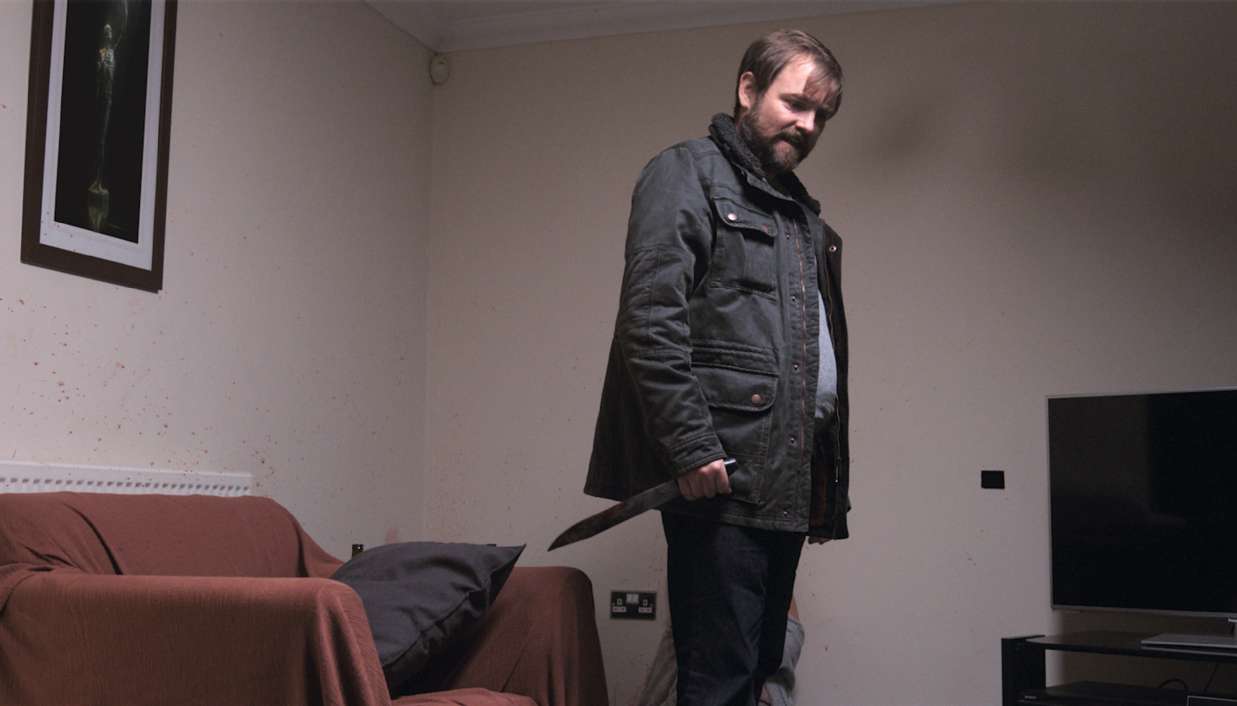This piece is part of a series of articles covering the films of the 2021 BFI London Film Festival, further entries in this series are available on the site.
A Tale of Love and Desire

Despite the title, A Tale of Love and Desire is a film that thinks more with its head than its heart, approaching the themes of eroticism and desire with an almost academic dryness and reserve. Far from any kind of Before Sunrise overnight or more epic Blue is the Warmest Colour styled romance, A Tale of Love and Desire explores ideas of Arab identity and how puritanical religious influences have worked to efface sex and sensuality from the culture. A Tale of Love and Desire follows a young man as he rediscovers that legacy of celebration and sexual expression and the turmoil it inspires in him by opposing his conservative upbringing.
The film’s intra-culture clash begins in a first year Parisian lecture hall, where French-Algerian Ahmed (Sami Outalbali) first catches sight of the Tunisian Farah (Zbeida Balhajamor) and immediately finds himself equally bewitched and terrified by this beautiful, bohemian, sexually confident young woman. He’s immediately drawn to her, but coming from a community where sexual self-expression is held in contempt, particularly among women, he’s afraid to express his feelings, or even admit them to himself. His confusion and embarrassment is intensified by their shared class in Arabic Erotic literature, overturning his preconception that Arabs have always been a pious, chaste and respectable people.
It’s a sharp division between the exilic and diasporic identities, and a much needed reminder that the Arab world is far, far from monolithic, containing many different cultural identities and strata of social enlightenment. When people from one culture come to live in another, some shed their old identity lightly, others wear it with pride and others bear it as a locked door to keep out the new horizons around them. Having been raised firmly under the latter school, Ahmed can be a very frustrating protagonist, gnawed at by repression and hypocritical sexual hangups and unwilling to be honest with anyone about his feelings, himself least of all and you often find yourself feeling that Farah deserves not to have to deal with his baggage. Not to be too crass about it: he badly needs a good f**k.
He desperately desires sexual intimacy, but he’s been socialised to reject it and his journey to enlightenment can be excruciating at times. It’s a progressive emancipation as he confronts the aspects of his education that he realises are not healthy and rediscovers parts of his culture that had been kept hidden from him. That’s what’s special about A Tale of Love and Desire and it’s take on Arab culture. Arab culture isn’t pious and stuffy and repressive, it’s been made so by centuries of religious indoctrination—and though the film never brings it up, lets not forget the colonialism here either. For Ahmed to learn how to feel, to celebrate his sexuality, to take pleasure and love, is not to reject his Arabic culture, but to embrace it.
The film can be rather stiff and humourless and for a film so preoccupied with sexuality, there’s precious little satisfying eroticism. In displaying its internal conflict between sensuality and repression, it perhaps leans a little too far in favour of repression, at least in terms of its own aesthetic strategies, if not it’s message, which I do find very positive and empowering. It’s a thoughtful and intelligent piece, if somewhat lacking in emotional punch, possessing a little too much of its lead’s restraint, and too little of Farah’s enchantment.
Bull

Bull‘s bad. It’s really bad guys. It’s the kind of bad movie you don’t feel even the tiniest bit guilty about bashing. Sometimes as a critic you do get pangs of conscience, this person put their innermost soul out there and you just sit and tear it to pieces. But if this is what your innermost soul looks like, I don’t feel any sympathy for you, there’s a million struggling artists who deserved this opportunity more than you did. I’m going to let myself enjoy this cause I sure didn’t enjoy the movie.
Low budget gritty revenge dramas are ten a penny at the best of times, and I think that’s a fair evaluation of the worth of this effort from Paul Andrew Williams, director of the “I thought it was all right at the time but having seen this I’ve now got my doubts” London to Brighton and the woefully grimy slasher comedy The Cottage. The film stars Neil Maskell, best known for his performance in Ben Wheatley’s only intermittently effective chiller Kill List, as Bull, a man who has returned after a decade of absence—in “hell” he says—to wreak his homicidal revenge on his ex wife and her family of violent racketeers. Upon re-emerging, he immediately murders a husband and wife, torturing them for information they don’t have about his missing son Aidan.
The film returns Williams to the darkly comic realm of pier-side crime he established with London to Brighton, though this time with a sub-Wheatley horror comic atmosphere. The borderline incoherent flashback structure takes us back to the custody battle that kicked off the whole homicidal debacle, but since the protagonist is as bad or worse than the at best one-dimensional people he’s taking revenge on, you never get invested in any of it. The film’s attempts to build a sinister tone more often come off laughable and annoying than threatening, including one of the worst pieces of slow-motion I’ve ever seen. I’ve seen some praise directed towards Neil Maskell for his truly, truly awful performance as Bull, with an annoyingly over the top and generic portrayal of a violent maniac. All the performances are poor but his especially so.
The ending twist will be divisive, I didn’t mind it, as absurd as it is, taking the film in a bolder, but equally stupid direction, but then I did see it coming and also predicted another twist that didn’t happen but would’ve been a more thematically satisfying conclusion than anything in the movie. I thought Bull was going to trick the dad into killing his own daughter instead of him, thus demonstrating the fruitlessness of seeking vengeance, but no, that doesn’t happen because that would lead to giving the movie a point and we can’t have that.
It’s just a bad, lazily written revenge movie without any of the emotional resonance, intensity, quality action or style that defines the best examples of the genre. It’s brainless macho nonsense, directed without style or skill and written without intelligence or imagination, with all the wit, truth or beauty you’d expect to find in the ramblings of the drunken bloke down the pub that the bartender told you to steer clear of when he gets like this.



